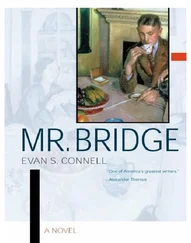“Well, for goodness’ sakes, that’s an awfully odd thing to write. You’re not a Buddhist.”
Douglas dipped his razor in the water. He was looking gently down on her in the mirror, white and foamy almost up to his eyes. She thought he looked inscrutable. She was bewildered.
“Well, I suppose you know what you’re doing. Now hurry and finish shaving; Harriet will soon have dinner ready.”
She expected him to shave off the mustache, but he did not, and so several days later while he was leaning against the bookcase with Omar Khayydm in hand she remarked, “You look like a perfect stranger.”
Douglas glanced down at her in a friendly way and said, without having asked what she meant, that he thought he would keep his mustache nonetheless.
But next morning, seeing it across the breakfast table, she knew it would have to go. Without a word she set down her orange juice and went upstairs to his room, where, in the closet, she found his Army cap. She put this on her head, and having touched up her graying curls at the mirror she marched downstairs and into the breakfast room swinging her arms stiffly. Douglas was not there. Harriet, stacking the dishes, gazed at her in astonishment. Mrs. Bridge smiled at her bravely, and as serenely as possible under the circumstances. Just then she heard Douglas cough. It sounded as though he were in the living room. She turned around and marched through the hall and into the front room where she came to a halt in what she considered a military manner, and tried to click her heels.
“Attention, Private Bridge. March right upstairs this very minute and shave off your silly mustache/*
Douglas had been looking at the photograph on the dust jacket of Dr. Foster’s book of essays. He dropped the book on the sofa and crossed his arms. When it became obvious that he did not intend to speak, that he was simply waiting for her to leave, she pulled the cap from her head and stood in front of him uncertainly, rather humbly.
He was to leave from the Union Station at four o’clock the next afternoon, but a few minutes after three the telephone rang. It was Mr. Bridge’s office and the secretary was on the phone. Mr. Bridge was dead. He had hurried into the office immediately after lunch and resumed work with a dictaphone. Sometime after that he rolled out of his swivel chair and sprawled on the carpet as dead as he would ever be. When the dictaphone cylinder was played they heard him say, “It appears, therefore, the defendant ” and the squeak of the swivel chair.
“It was awfully good of you,” Mrs. Bridge said, standing at the half-open door, telling each visitor good-by. “Everyone has been so kind.”
114. Letter from a Buddhist
Douglas, having exchanged telegrams with the commandant of his camp, remained in Kansas City till after the funeral. Ruth had flown home from New York and Carolyn had driven up from Parallel; both of them were struck by the change in Douglas. Ruth had no difficulty accepting him as the new head of the family, though he was nearly five years younger than she. Carolyn challenged him once or twice, half-heartedly. Neither of them expected their mother to make decisions. And to Mrs. Bridge herself it seemed natural that he should become the authority. Harriet, keenly attuned to every situation, asked Douglas if she could have a raise; he said no. From that moment on she stopped calling him by his first name and referred to him as Mr. Bridge, and his mother, hearing this for the first time, began to weep.
Soon, like birds abandoning a tree, they flew off in different directions. Ruth went back to New York, Carolyn to southern Kansas, and Douglas to the Army. The functions of the house were carried on by Harriet, and Mrs. Bridge was left alone. She often went to Auxiliary meetings, and she went shopping downtown, and to the Plaza for luncheon, and to a number of parties, but she could no longer lose herself in these activities; the past was too much with her, and so she was frequently content to stay at home, waiting for the mail, or waiting for someone to call, remotely conscious of the persistent roar of the vacuum cleaner, no longer car-ing if Harriet smoked in the kitchen.
When she received the first letter Douglas wrote after returning to camp she thought how intimately it resembled the letters her husband used to write when he was out of town on business. There had been something quaint about her husband, an old-fashioned inclination which had caused him to begin his letters to her with, “My dear wife …”
How strange that Douglas should write:
My dear Mother,
My father loved you above all else, and if he was apt to be rude or tyrannical it was because he wanted to protect you. He wanted so much for us all. He did not ever realize that what we needed was himself instead of what he could give us. On more than one occasion he and I discussed the family and its problems and in these talks I felt his constant preoccupation with your welfare after he was gone. I guess he knew he was not going to live much longer. He said he had never told you about the trouble with his heart.
There is nothing at all for you to worry about. You made him very happy during his life. I am quite certain that never once was he interested in another woman. My love to you, Mother, and to both my sisters. Tell Ruth when next you write her that I am anxious to hear from her.
Well, we have to go out on maneuvers now, but I’ll write you again pretty soon.
With love, as always,
Douglas
Not long after this she was window-shopping on the Plaza when a young man in civilian clothes stopped and addressed her by name. At first she did not know him; then she saw it was Jay Duchesne.
“Why, I thought you were in service!” she said with a smile. Then she noticed he was missing an arm.
“I was/’ he said, shrugging the shoulder where the arm had been.
“Oh, I’m sorry, Jay. I must have been asleep.”
“That’s all right/ 1 he answered cheerfully, and after a pause he said with a rueful grin, “I’m one of the clowns you read about in the comics the ones who never do anything right. I was always clumsy/’ He took a package of cigarettes from his pocket, expertly shook one between his fingers and lighted it. “How’s old Red Dog these days?’* he asked, blowing a stream of smoke.
“How is who?”
“Old Red Dog Doug. Gosh, I haven’t seen the bum in years. What a character he is!”
“Why, he’s in the Army/’ she replied. She was disconcerted by the news that Douglas was a character; he had al-ways seemed very normal to her, though a little more laconic than most boys.
“They bagged him, too? No kidding?” Duchesne laughed, puffed on his cigarette, and said, “He’ll give ‘em fits/’
“He seems to enjoy it and he’s doing quite well.” She was positive Duchesne was about to say he never heard of anybody doing well in the Army.
“Kidding aside,” he said. “How times change. What about Mr. Bridge? Dead and gone these many years, or still raking in the jack?”
“Mr. Bridge passed away not long ago,” she replied stiffly.
Duchesne observed her for a minute, smoke curling from his nostrils. “I’m sorry to hear that,” he said finally. “He was a nice guy once you got underneath the crust he was a real soft touch. Is Ruth still in the big city?”
“Yes. She’s been there quite a while and is doing very well.”
“I can believe it. I always figured she’d wind up in Hollywood. She was sort of a glamour type, you know, but mysterious, like in these secret-agent movies.”
“Oh?”
Duchesne studied his cigarette. “Look, Mrs. Bridge, how’s Cork?”
“Why, she’s just fine.”
Читать дальше












